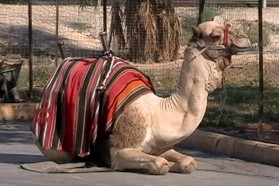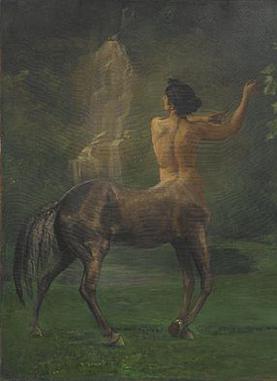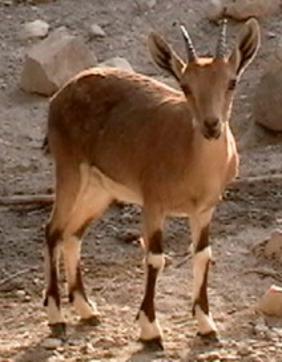Partner Name
Name of Contact Person
(800) 555-5555
www.partnerwebsite.com
Partner Name
Name of Contact Person
(800) 555-5555
www.partnerwebsite.com
Partner Name
Name of Contact Person
(800) 555-5555
www.partnerwebsite.com
Humans and the Rest of Creation:
Are We Just One Among Many?
Partner Name
Name of Contact Person
(800) 555-5555
www.partnerwebsite.com
My teenage daughter was reading aloud a news article that said that after existing for 55 million years, the Northern White Rhino had been unable to survive humans, and was finally extinct.
“I hate people!”, she said, implying that humans are the worst creatures on the planet.
“That’s exactly how the authors were trying to make you feel”, I replied. But she took it as siding with the poachers who had brought this amazing animal to its demise.
Far from it; aside from the fact that I didn’t believe the part about a multi-million-year history of animals that were actually created the same day as humanity (Genesis 1:24-31), I couldn’t have agreed more that this news was tragic. But there was something about the tone of the description that triggered a red flag in my mind.
The background was that I knew that there are some who think there are too many humans, and that we are crowding out other species. “Share the earth” is the byword, which makes sense and seems “environmentally-friendly” until you realize that they do not consider humans to be any higher than any other species. (And of course I am by no means saying that all conservationists fit this description; my grandmother passed on to me a love of wildlife and its preservation.)
One solution they propose is to let the animals breed freely with no restrictions but put a cap on the population of humans and then cut it back all the way to an “ideal” of just 500 million people (1/16 of the current population!)—whether gradually via attrition or more quickly via calculated culling of the unborn, “euthanizing” of the no-longer-productive, release of diseases that target large populations, etc. Some, believe it or not, go so far as to say, “Humans are the real virus!” I.e., we are just a plague on the surface of the earth and if the earth were rid of us, it would be a better place. If an endangered clam were to survive at the expense of the human race, they would think that was progress. So it’s not even species equality they are really asking for; it’s flagrant suppression of our species that is really the aim.
Who would really want to go back to a world where one has to be afraid to venture out on a nature hike because of the danger from too many wolves or mountain lions? Not all thinning out of wild animals has been for mere sport; safety is a real issue! Some of the condemned Canaanites even had to be left in place so that the Promised Land would not be overrun by vicious beasts. (Exodus 23:29) Many proponents of animal rights often seem to forget that not all animals are inherently friendly. Common sense is the first casualty of many an extreme philosophy.
Who the suicidal humans are that are that are pushing this pan-genocidal agenda does not concern us for this inquiry; most of the human puppets being used to preach this philosophy are blind to where it would lead. It really comes from another source—a truly sinister one that has hated humanity ever since we were given our position by One higher than he, effectively ousting him from rulership of “his” earth. Hence his power grab in the Garden of Eden to regain the upper hand by toppling us morally so we no longer deserved the role. “We do not wrestle against flesh and blood, but against principalities and powers, against the world-scale rulers of the darkness of this age, against spiritual wickedness in high places.” (Ephesians 6:12) Something there is that does not like a human, and that is what my ears were “sniffing out” when I heard what my daughter read.
Again, don’t get me wrong; humans are by no means innocent. It was our selfishly falling for his dazzling but unrealistic offer that caused all the problems the rest of creation experiences, whether just as part of the chain of natural consequences that led to thorns and thistles, or by a breaking of the bonds of leader and led at a more foundational level.
But that’s precisely the standard beside which we must measure our response, for there is another side to the issue. Humans were, originally, created in the image of Elohim. We were allowed to name the animals, indicating a kind of headship over them, and we were overtly given the task of “subduing the earth.” (Genesis 1:28) We were not meant to be just one among many equals. We were made to lead.
Just what does that “subduing” mean, though? It can mean to bring into subjection by force or make subservient, subjugate, place in bondage, or trample (make downtrodden). The Hebrew term is kabash, and that word has even made it into English: to “put the kibosh on” something means to squelch it, stamp it out, suppress it, hold it back, or even bring it to an end. No wonder some take it as an excuse to exploit the environment for our own advantage, even using some creatures’ aggressive tendencies as a source of entertainment—from chicken fights to bull fights to the Colosseum--or competing to hunt the biggest game, when the animals killed are not even going to be used for food. To the extent that that we do any of those, the critics are justified.
It is humanity that has brought all of creation into bondage (one meaning of kabash)—“bondage to decay (or corruption)”, as Paul puts it in Romans 8:21. (Not corruption in the sense of financial abuse, but entropy—the fact that things break down and fall apart when left to their natural tendencies with no outside intervention.) It can easily be argued that “nature” is “red in tooth and claw” (in Tennyson’s words) only because humanity upset the fine balance and forced animals into such desperate situations as to have no choice but to become carnivorous predators. We have certainly done more damage than any other species; we alone have the potential to destroy the whole earth in a nuclear holocaust. Yeats went so far as to say, “Man has created death”!
But that can hardly be what YHWH meant when he told humans to kabash the whole world. We were unfallen at that time—knowing nothing of the evil half of the “knowledge of good and evil”. Must there not therefore be another side to this “domination”—the one that was really intended before there even was a bad side to creation? Yes: kabash also means to “rule” or “have dominion” in a good sense. A true ruler does not oppress those over whom he has an advantage, but takes care of them because of his unique position of being able to do so.
Some other ways the term is used throughout Scripture are “to have something under control” (Num. 32:22; Joshua 18:1) or “to rein in” things that are going in the wrong direction (Micah 7:19),
But with all of the ways we have twisted this concept, can any of this original, ideal form be recaptured?
Yes, if we hang onto, support, and encourage the vestiges that still remain. It doesn’t have to be a downhill trajectory. The Internet is full of heart-warming stories of animals who instinctively came to humans for help when their mates were stuck in quicksand, of whales in pain approaching boaters to scrape the barnacles off them, or charging elephants responding in kind to humans who firmly stood calm and still. It seems animals (and not just "man's best friend") still have an innate memory of who is meant to be in charge and who it is that can help them, even though the fear of us had to be temporarily imposed on them to prevent a regression to some hideous things that took place before the Flood. (Gen. 9:2)
A positive way to think of kabash is harnessing animals’ specializations for useful or productive purposes. One of the most salient ways we, though fallen, still have achieved this is with horses, camels, or other animals that can be ridden—even elephants. The latter can also be used to carry building materials in ways mechanical cranes now accomplish. Other animals seem specially-designed to carry baggage--and don;t seem to mind, as long as the burden is reasonable. Dogs are used to track down scents we are unable to detect. These are all beneficial ways of kabash-ing animals without harming them.
Kabash is also taming them, and not just training them to do tricks. Domestication goes beyond the mere herding of animals so they are there when we need them for milk or meat; we also give many animals that are otherwise “subjected to vanity” (Romans 8:20) a purpose in life, whether as protectors like dogs or pets that can provide comfort or sympathy when they sense we are hurting.
The clue is right there in that term “subjected”, for it is the Greek equivalent of the Hebrew kabash. When we were no longer fit masters for the animals, they ended up being subjected to another ruler—this time “vanity”, which is aimlessness, lack of success, missing their appropriate calling; i.e., they no longer have an integrated purpose. Yes, they have instincts that keep them out of some trouble. But that is not a sustainable substitute for what they lost. The “circle of life” as it now stands is really a vicious cycle that goes nowhere, which frustrated Qoheleth, the writer of Ecclesiastes, to no end. Birth ultimately ends in death; where does it get any of us?
But we are given the additional information that this subjection was accomplished by YHWH Himself. That makes all the difference.
Originally He did not even give us the animals as food. Why did that change (Genesis 9:3)? There are several theories worthy of consideration, and all of them may even be true.
One, cited by G.H. Pember over a century ago, regards a Hindu belief that a bodily fluid called akasa makes one more spiritually sensitive, and is particularly necessary for mediums’ success. But it is quickly depleted upon contact with those spirits. The only way to replenish it, they say, is a totally-vegetarian diet. This may have worked in a more righteous way for Daniel when the unavailability of kosher meat forced him to be vegetarian. He did have great spiritual sensitivity. But before the Flood, fallen angels were definitely in close contact with humans, with some very undesirable effects (Genesis 6), so it could be that YHWH overtly began allowing us to eat meat in order to curb such easy interaction with demons. This was not such good news for animals, but it could show just how far YHWH was willing to go to keep His creatures from experiencing that scenario again. In such triage, He definitely put a priority on humans over beasts.
Joseph Dillow (in The Waters Above) suggests that before the vapor canopy collapsed (the “windows of heaven opened”) at the time of the Flood, we did not get as many ultraviolet sun rays that now provide vitamin D, and people had to get all of this vitamin from green plants. If men had been allowed to eat meat before that, just like today, many people would not have eaten as many vegetables, but at that time this meant they would not have gotten enough of that vital nutrition. Granted, it’s not a humanitarian reason for meat not being allowed, but it may have been a side benefit.
YHWH engineered the distribution of the post-flood animals to tip the scales so that the “clean” animals would now far outnumber the unclean. (Gen. 7:2, 8) That suggests that there may have been something going on before the Flood that was addressed by the command, “You shall not lie with any beast.” (Lev. 18:23) I don’t see a direct reference to it in the extracanonical books that give us more detail about what the fallen angels did before the Flood, but I have to wonder whether there was a parallel: were some strange creatures being engendered that might have given rise to the Greco-Roman stories of things like fauns, minotaurs, centaurs, etc. (half-human, half-beast)? Might YHWH have wanted to discourage this by making sure the animals were not on the same footing as mankind and making them want to keep their distance from us? (Gen. 9:2)
Remember, it was the voice of a non-human creature that brought the first temptation to humans. Is this one reason animals are essentially mute today, making vocalizations but only on extremely-rare occasions speaking words—because they used their words, when they had them, for an ignoble purpose?
All of these things certainly complicated our relationship to the rest of the living creatures.
But one day humanity as a whole will have another shot at fulfilling this calling to kabash. When YHWH subjected creation to bondage, it was temporary--“in hope, because the creation itself will also be delivered from the bondage to decay into the magnificent liberty of the children of Elohim!” (Rom. 8:21) I.e, not just we, but the animals, will get to enjoy a restoration of the original paradigm that was lost.
The prophets’ vision, parallel to that of us humans beating our swords into plowshares and no longer learning war, is that “the wolf will also dwell with the lamb, and the panther will lie down with the young goat, …and a little child shall lead them…The lion will eat straw like the ox, and a nursing child will play over a snake’s hole…They will not hurt or destroy in all My holy mountain.” (Isaiah 11:6-9)
It seems our kabash job will be fully restored; even mosquitoes will apparently be valuable creatures at that point!
It appears that we, like the beasts, will be vegetarians again, though there is the paradox that Ezekiel seems to indicate that not only will clean animals still be slaughtered at the Temple; the Messiah himself may do some of the slaughtering! We may need to wait for him to explain how these two visions fit together.
But in the meantime, can we make progress, or is it too late to do anything but wait until the Kingdom arrives, when conditions will be more favorable?
The Torah is not written for an ideal world, but for the sad realities of the present age, and it is very much in favor of animals’ welfare. It does not place them at the same level as humans’, but it is strongly against cruelty to animals. We can extrapolate many analogous humanitarian applications from such verses as "if you see a donkey...crushed beneath its burden,...help it" (Ex. 23:5), “do not muzzle an ox when it is treading out grain” (Deut. 25:4), “do not take both the mother bird and her eggs for food” (Deut. 22:6), or “do not cook a kid in its own mother’s milk” (Deut. 14:21).
At the same time YHWH told us to kabash the earth, He also said to fill it. (Gen. 1:28) There are still many places you can walk or drive for miles and not see another human being. So there are clearly not really too many people in the world. Earth is far from full; it is only over-crowded in certain congested spots where people perceive some advantage to all living in the same vicinity—opportunities, resources, etc. When everyone is vying for the same location, yes, there’s a population problem. But that is best solved by obedience to the tenth commandment. Aside from contentment, the Internet has also made proximity to physical buildings necessary much less often, since even libraries are now at our fingertips.
And we need to cultivate tastes that do not pollute or endanger the world in ways that competition, pride, selfishness, or megalomania do. The root problem is not being human, but being sinful.
If we caused the problem, we ought to take responsibility to fix it; that is the Torah way. Can we? It may require changes to earth’s atmosphere and axis tilt that get us back to the original pattern (the “restoration of all things”) before some environmental conditions are totally solvable. But meanwhile we can certainly do all we can, though the greater priority is to prepare people spiritually to get through the mess that has to take place on earth at some point before that. The first step is for us, the ones responsible for the rest of Creation, to get back in right standing with YHWH. But this is possible through the blood of the “Lamb”, which also makes at least the slaying of other animals as sin offerings no longer necessary.
And we have already made visible progress. Aerosols are all but obsolete. When I was a child, the North American Great Lakes were too polluted to swim in; they no longer are. It was not impossible; maybe we can be ambitious enough to do the same for the oceans. Good starts have already been made, and the environment seems to have built-in corrective mechanisms which can do far more than we could if we just tip the scales a bit.
There is hope if we keep doing our best. “Nature” has built-in ways of responding to humans once we get back in alignment with our Creator and take the place He intended for us, as one linchpin in the right place makes the rest of the machine work properly; YHWH created it to work that way. Any small step can therefore have exponential results far beyond the part we can do, if we do indeed do our part.
Specifics? They are beyond the scope of this article. But maybe that’s where you come in.





